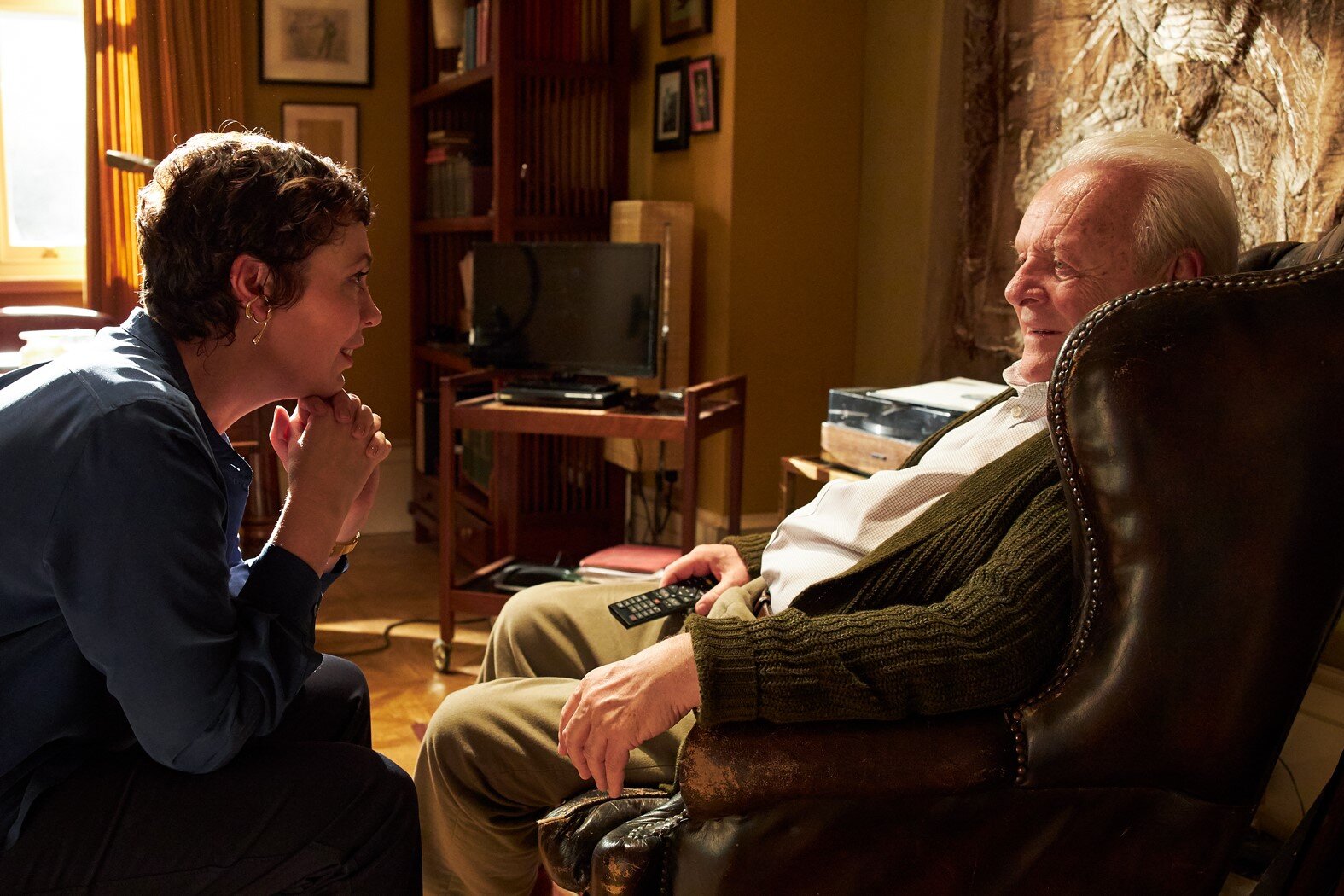Review: The Father
The 2020 slate of films seemed to have had an unusually large lineup of stage-to-screen adaptations. From One Night In Miami and Ma Rainey’s Black Bottom to The Prom, we got to see quite a few directors attempt to reimagine existing properties. Stage play adaptations usually face specific challenges when transitioning to the big screen. Namely, evolving into a story that was originally written to exist in a small space like a stage, come to life and feel cinematic in a movie.
That was no different with Florian Zeller’s The Father. The film largely takes place in one London flat with a small number of characters with most scenes being driven by dialogue, not action. Where I think the other stage-to-screen adaptations that were released this year failed, The Father shined. Granted, the claustrophobic and disorienting nature of the plot of The Father helped to compliment its constraints.
The Father follows Tony, an aging man with dementia (played by the brilliant Anthony Hopkins) and his daughter trying to navigate his increasingly debilitating illness (played by Olivia Coleman). Anyone who has been impacted by such a harrowing disease as dementia will immediately recognize the helplessness and utter frustration that accompanies being in a relationship with someone diagnosed with the disease. Tony is at times charming and acting like himself. At others, he’s disoriented, impetuous and an altogether different person.
Zeller makes brilliant creative decisions in the production design, casting, and camerawork to help us feel the same disorienting sensation Tony is likely experiencing. Unlike other films I’ve seen that deal with the topic of dementia, I’ve never been taken on a journey that helps me imagine what it might be like inside the mind of someone who suffers from the disease.
This film cuts to the heart. Not only because of a career-best performance from Hopkins, but because Zeller taps into something so specific to people who have suffered their own trauma with loved ones walking a similar road. The film both invites us into an empathetic point of view from Tony’s perspective, while also letting us feel the raw, exasperation of the people in his life who are trying to love him in the best way they know how.
While it might not be a welcome premise for anyone who has felt the sharp sting of losing someone they love to dementia, it’s also an oddly cathartic experience handled with a deftness that is surprising for a first-time director. You won’t want to miss this one.

